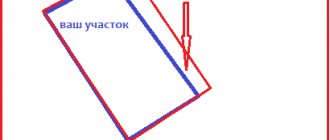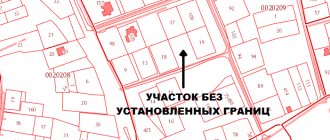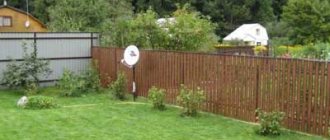All land issues are serious and sometimes difficult to resolve. To simplify the resolution of conflicts, rules for operating the site have been established. They are introduced if the territory is in shared ownership of several persons and it is impossible to allocate a part to each person in kind for a number of reasons.
The lack of clear and intelligible agreements between owners often leads to disputes that end up in court. You can prepare a claim to determine the procedure for using a land plot with the help of a lawyer who will suggest the most effective system of action. You can find a specialist and communicate with him online on the prav.io resource. There is an option for a free service and a more urgent consultation for a fixed price. The terms and costs of services are indicated on the website. In addition to communicating online, you can talk to an expert by phone.
Shared land differs from separate land in that it must be disposed of only jointly and through a general agreement. The exception here is the case of one of the participants donating his part - this procedure does not need to be agreed upon with the co-owners.
Reasons for determining the order of use
The use of land can be determined in a variety of situations. But experts call the most common reasons:
- division of a land plot acquired by the owners of shares as a result of a will
— land disputes often arise when determining the share of owners who are not related to each other (for example, the right to a share in a land plot follows from a share in house ownership, the house is owned by several residents/families who are strangers to each other) who wish to have their own allocated plot
- a share in the common property was sold to a third party person/organization who wants to be the owner of his own isolated plot of land, and not be a shareholder in the common property
For how long can you get land?
Z
The Land Code provides for the possibility of providing a land plot to a citizen for rent for haymaking, grazing farm animals, gardening, or a plot of land located outside the boundaries of a populated area for personal farming (clause 19, article 39.6 of the Land Code of the Russian Federation). The same article contains a rule on the provision of a land plot to a peasant (farm) enterprise or agricultural organization with reference to the Law “On the Turnover of Agricultural Land” mentioned above. (Clause 12, Article 39.6 of the Land Code of the Russian Federation). These provisions of the RF Land Code establish the possibility of obtaining state or municipal agricultural land for rent without holding a tender. However, for these grant cases the 49 year period does not apply. Thus, according to the Federal Law “On the Turnover of Agricultural Land,” the provision of a plot of land from agricultural lands for rent for haymaking and grazing is limited to three years.
For a period of 3 to 49 years, land plots are provided for agricultural production (clause 11, article 39.8 of the Land Code), with the exception of the case of providing land to citizens for haymaking, grazing farm animals, and gardening. Here, the Land Code, similar to the Turnover Law, establishes a term limit of 3 years. Important - subject to proper use, the leased land plot can be purchased into ownership after 3 years from the date of conclusion of the lease agreement. (Part 4, Article 10 of the Federal Law “On the turnover of agricultural land”).
The procedure for determining the procedure for using a land plot

Determining the procedure for using a land plot has two resolution options:
- a settlement agreement concluded between all owners with the execution of the relevant documents
- in the absence of understanding between shareholders, a lawyer comes into play, and this situation can only be resolved through the judicial authorities in accordance with the legislation of the Russian Federation
How can it be determined?
In determining the order of use of a land plot, the concept of the established order is of great importance. It means the exploitation of a land plot or other immovable object that is in shared ownership in accordance with a certain agreement, not even established by any document.
This is explained by the fact that the court will strive to take into account the interests of all owners, as well as be guided by the opinion of experts. In addition, common ownership may not imply the possibility of division.
Their role is often played by cadastral engineers. Their help is irreplaceable, since the share recorded in documents often does not correspond to its real counterpart. A statement of claim to determine the procedure for use involves proposing one’s own version with the obligatory justification of its feasibility. The defendant follows a similar procedure.
It is important to take into account that absolutely any agreement concluded between co-owners within the framework of the law in 2021 can be secured through a special agreement on the procedure for use.
It will contain:
- Information about all co-owners of shared property.
- About the size of shares established by the title documentation, as well as links to it.
- Terms of Use.
- Signatures of all participants, as well as the date when the signing took place.
Such a transaction is classified as long-term and must be executed by all owners. However, the new co-owner who has assumed the rights has the right to challenge the agreement concluded without him, since the conditions provided for by it may violate his rights.
Determining the procedure for using a land plot through a court decision
If the owners are unable to reach an agreement, the time comes for a lawsuit. The plaintiff submits a statement of claim in the established form to the judicial authorities at the location of the land plot. The court considers the circumstances of the case, appoints an examination if necessary, and makes a decision based on the legislation of the Russian Federation.
The fact is that solving land management issues requires not just a lawyer, but a cadastral specialist with special knowledge and experience in the field of land management.
will provide assistance in determining the procedure for using the land plot, provide cadastral and legal assistance. The company's specialists have extensive experience in handling cases regarding the division of shared ownership and expert analysis of property.
Positions according to the law
According to paragraph 1, article 252 of the Civil Code of the Russian Federation, shared ownership is subject to division between tenants/co-owners only by mutual agreement. According to paragraph 3 of the same article, in the absence of the agreements described above, the participants have the right to demand the allocation of their share from the common property in kind.
As a rule, during division, the co-owners are allocated plots of land, isolated parts of the premises in accordance with the established share of each of them. At the same time, unauthorized construction of objects does not represent a basis for denying secession to other owners of the land occupied by them.
As part of the trial, the court takes into account all buildings and other objects located on the land as evidence of the actual use of the site.
In addition, in accordance with current legislation, the court has the right to refuse to allocate a share in kind in a number of situations:
- if property suffers disproportionate damage as a result of division;
- its intended use will become impossible;
- the cost will decrease or the technical condition will deteriorate.
Moreover, if the allocation of a share in kind is not provided for by law, the owner requiring the allocation has the right to demand payment of his share from the other co-owners of the shared property.
The technical capabilities of such a division are regulated by Decree of the State Construction Committee No. 170 of September 27, 2003, as well as by the Committee on Architecture. According to it, the critical level of wear for stone buildings should be considered 70%, and if a wooden residential building is considered - 65%. If wear is more significant, separation is not permitted.
Reference: According to Article 11.4, paragraph 1 of the Land Code of the Russian Federation, with the successful division of a plot, several new ones are formed, and the old one ceases to exist. The plots obtained during the division must have a minimum permissible area, and also comply with the conditions specified in Article 11.9 of the Land Code of the Russian Federation.
The main requirements for land plots received during the division are listed by the State Land Code in Article 11.9. If a non-compliance with the conditions is detected, the plot will not be registered in the cadastral register in accordance with Federal Law No. 221.
How a land purchase and sale agreement is invalidated - read on.
Sample agreement on the procedure for owning and using a land plot:
Possession, use and disposal of land plots in shared ownership are regulated by the general provisions of the Civil Code of the Russian Federation on shared ownership (Articles 246, 247 of the Civil Code of the Russian Federation).
Possession and use of property is carried out by agreement of all participants in shared ownership, and if agreement is not reached, in the manner established by the court. Each participant in shared ownership has the right to own and use part of the common property on an equal basis with the other participants in shared ownership. The part of the property provided for use must be proportional to the share owned by the owner. If this is not possible, he has the right to demand compensation. If there is real estate on the land plot, it is necessary to take into account the rights of the owner of the said property (regardless of whether he is the owner of one of the shares of the land plot). The owner of real estate located on someone else's land plot has the right (clauses 1, 3 of Article 271 of the Civil Code of the Russian Federation): - to use the land plot; - own, use and dispose of real estate belonging to him at his own discretion (including demolishing relevant buildings and structures). The disposal of property in shared ownership is also carried out by agreement of the owners. The law grants the right to a participant in common property to dispose of his share at his own discretion (sell, donate, bequeath, pledge, etc.). If alienation for compensation is expected, it is necessary to comply with the rules of Art. 250 of the Civil Code of the Russian Federation on the pre-emptive right to purchase. Land legislation also contains special rules related to the disposal of land plots. Thus, an additional basis is provided for applying the rule of pre-emption in the event that there are buildings on the land plot. The owner of a building or structure has a pre-emptive right to purchase or lease a land plot by analogy with the procedure established by civil law for cases of sale of a share in the right of common ownership to an outsider (clause 3 of Article 35 of the Land Code of the Russian Federation). When disposing of a land plot, peculiarities may arise related to the subject composition of the owners. For example, foreign citizens, stateless persons and foreign legal entities cannot have ownership of land plots located in border territories and other special territories (clause 3 of Article 15 of the Land Code of the Russian Federation). Therefore, it is impossible to sell (or otherwise transfer) a share of such land to them. Agricultural lands have a special status (they do not include garden and vegetable plots located on agricultural lands, land plots intended for personal farming, garage construction (including individual garage construction), as well as land plots on which real estate objects are located) - clause 1 of Art. 1Federal Law of July 24, 2002 N 101-FZ “On the turnover of agricultural land”, hereinafter referred to as Law N 101-FZ). Possession, use and disposal of a land plot of agricultural land, which is in shared ownership of more than five persons, is carried out in accordance with the decision of the participants in shared ownership, which is adopted at the general meeting of participants in shared ownership (Article 14 of Law No. 101-FZ). Certain restrictions are imposed on a participant in shared ownership of a land plot from the category of agricultural land. He may, at his own discretion, without allocating a share: - bequeath a share; - renounce ownership of the land share; — contribute it to the authorized (share) capital of the agricultural organization that uses this land plot; — transfer your land share into trust management or sell or donate it to another participant in shared ownership; - transfer your land share into trust management, or sell or donate it to an agricultural organization or citizen - a member of a peasant (farm) enterprise that uses this land plot. If the owner wants to dispose of the share in a different way (for example, sell it to a third party), he must first make a division of his share (Article 12 of Law No. 101-FZ).
Why is land registration needed?
While the land plot is free in the database and on the Rosreestr map, the district administration has no right to refuse to provide it to others, as a result, hayfields used for many years by one user without registration may end up in other hands, such cases have already happened. In addition, the use of land without registration is also an administrative liability with a fine.
A document giving the right to use hayfields, pastures, or other areas is a registered land lease agreement, a certificate of ownership. Skipping any action from the algorithm presented above entails non-registration or under-registration of the land.








